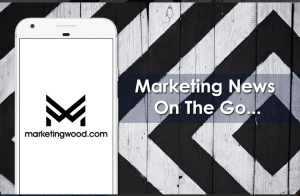 Starting with the basics about content marketing.
Starting with the basics about content marketing.
What is Content Marketing
Content marketing is a form of marketing focused on creating, publishing, and distributing content for a targeted audience online (Wikipedia definition).
What is B2B Content Marketing
B2B content marketing is the art of using content to expand your business’s audience, strengthen and develop brand affinity, and ultimately drive leads and sales by appealing to other businesses. (Wordstream definition)
Why Content Marketing is so important
According to Internet Stats, also as per WordPress report approximately 1.6 billion websites exists today and more than 70 million blog posts are being published every month.
For B2B brand, content marketing is considered as most viable method to promote and engage a brand at an significantly lower cost over time.
Major advantage with content marketing is it enhances conversions rates by awareness, learning and building trust relationships for an expected purchasing decision trigger.
Major Elements of Content Marketing:
Strategic plan
Answering the Who (audience), How (tools and channels), What (to measure) is all you need at a macro and micro level for an effective content strategy plan.
 How will deliver the content to them?
How will deliver the content to them?
Social Media: Facebook, Twitter, Linkedin and Instagram provide targeting capabilities for content distribution. Finding prospects, engaging users, remarketing with proper communication. Provides target market feedback. With enhanced social sharing / going viral power, social media has great reach for target segment.
Onsite Content:
Content will always remain the king. Relevancy of content makes the brand relevant for the user. Research based articles on brand website. Content needs to be specifically curated toward the audience which consists of specialists and decision markers to induce a purchase intent.
Email Marketing and Newsletters
Personalized newsletters with regular schedule time-table induce a connect with the sender (brand) which should be the primary goal of a newsletter. Newsletters based on the user’s reception and intent enables on-going communication helping in acquiring more prospects.Popular email solution providers are Mailchimp, HubSpot, Marketo, Constant Contact.
Blogs
Content marketing and blogging although look same, in business, fetch a totally different result. Content marketing if done properly can earn at scale for an agency. In a B2B scenario, using Keyword research.
Going beyond the text, new media formats (audio, video, animations) and user generated content (UGC) let the brand express more and be effective in business communication whether it is B2B or B2C depending on the nature of the business.Popular blog platforms for content marketing are HubSpot, Squarespace, WordPress, Wix, tumblr and Weebly.
Marketing via Events: Workshops, Conferences, Seminars, Influencer Marketing, Masterclass and Awards
Community building happens with connections. Experience shows in-person events and one-on-one dialogue with the decision markers (CXO’s) not only shows your brands thought leadership but also helps in reducing the purchase cycle by providing better clarity and awareness about a product or service.
Industry Experts Webinars and conferences provide un-parallel options to be informative, engaging, and entertaining. Brands with a long term vision utilize the opportunity to share experiences and get learning along-with networking opportunities. Keeping the discussion topics around whats happening right now will anytime have greater impact, keeping agenda and discussions agile can help in adapting to channelize the business discussions better.
Listening to the chatter/buzz after a business event is equally important to understand the impact generated and efforts taken.
Content marketing when achieved with a story telling strategy can be a lethal weapon for the business to crush the competition, keep yourself relevant and have a sustained flow of orders through existing and potential relationships.
Have clear goals (long term and short team), deeply chalked out plans for operations and strategic objectives to be achieved makes a successful content marketing strategy.
Broadly speaking content marketing from a business perspective is focused towards:
1. Building the trust (Consumers are looking for something)
2. Brand Awareness and Loyalty
3. Awareness about the product/service and engagement
3. Helping in driving decisions and leads
Organizational goals for B2B content marketing
– Brand connection (consistent top of mind recall)
– Customer retention and loyalty (for repeated business)
– Lead generation and nurturing
– Sales
Two ways content marketing goals can be defined are:
SMART (Specific, Measurable, Achievable, Relevant, and Time-Bound) goals
CLEAR ( Collaborative, Limited, Emotional,Appreciable, Refinable) goals
Goals are to be further charted/refined basis metrics which the marketing team can keep a track and report. KPI’s (Key Performance Indicators), KRA (Key Result Areas) and OKRs (Objectives and Key Results) can define and measure the success and failure of a content marketing strategy.
Understanding the business goals, priorities and target market/audience can help build a innovative and relationship based content strategy, it’s always good to have a re-look at your existing plan, take help from the subject matter experts and tweak according to the current market conditions, demand and competition.


